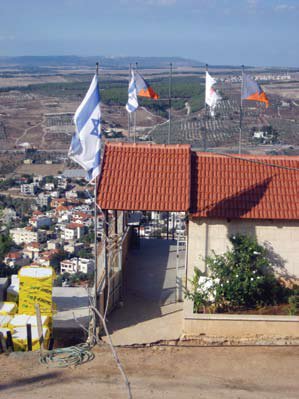
Memorial to Muslim soldiers in Wadi Ara
It would take some doing to find an Israeli flag flying in an Arab Muslim village in Israel.
However, in the Wadi Ara village of Arara there are two - and if one knows where to look they are visible, a few meters apart, from the heavily trafficked Route 65 that cuts between the Menashe hills and the Amir mountain range.
Arara village is sprawled across the steep, wide slopes of the Amir mountain range and just a few undulating hills away from the city of Umm al-Fahm. In Arara, perched three-quarters up the steep slope, a small white building with a red-tiled roof supports two large Israeli flags and those of an IDF unit and the Yad Labanim organization that deals with IDF commemoration and heritage.
Inside the building, one wall displays black plaques showing images and details of eight Arab Muslim soldiers who died whilst serving in the IDF or Border Police. A large Israeli flag is nailed to another. White plastic chairs are stacked high in one corner and another four or five are placed around a green plastic table in the center of the one-room building erected by the father of Sa’id Jujah, one of the memorialized soldiers.
Many of the 14,000 Arab citizens of Israel who reside in Arara are perturbed at the sight of the Israeli flags flying on tall masts above their houses – but none have attempted to take them down.
Very few came to the funeral in Arara – or to the mourning tent – when Yousef’s son Sa’id fell in the line of duty, blown up by explosives packed in a tunnel dug by Palestinian terrorists under a sentry box in Rafiah, Gaza in December, 2004. Sa’id died alongside four other IDF soldiers, all of them Muslims.
Sa’id Jujah, his twin brother Walid and older brother Hisham were all inducted into the IDF on the same day. Walid and Hisham have since become career soldiers and are building homes next door to the memorial to their brother Sa’id and other Muslim soldiers.
On the veranda, a tiny cup of strong coffee in one hand, a cigarette in the other, sits Yousef Jujah. One of the black plaques showing laser images of the fallen soldiers on the wall behind him is a young man from the Israeli Arab village of Meiser, a 10 minute drive along the Green Line from Arara. Judat Abu Rakia was ostracized by fellow villagers when he decided to volunteer for the IDF.
“He was a friend of my son’s and so I decided to adopt him as well,” explained Yousef. Two years after the death of Sa’id, Judat Abu Rakia died of a heart attack whilst still in the army.
Squinting against the sun, Yousef stares out across the rooftops of Arara down below and across to the Menashe hills in the near distance. The view from the veranda is stupendous, especially on a sunny day, after the previous day’s rain had washed away the accumulated summer dust and rid the air of the excruciating heat and humidity that for months reduced visibility to a mere few kilometers.
The rows of houses built on the steep slopes of the mountain create gigantic steps down to the main road where scores of vehicles can be seen but hardly heard. On the other side of the road, on the lower slopes of the Menashe hills nestle the villages of Ara and Kfar Kara, open areas dotted with olive orchards and a small cluster of houses here and there. With no effort one sees across the Menashe hills plateau and the ever-expanding town of Yokneam creeping up and over where the hills meet the slopes of the Carmel mountain range.
Haifa University sticks out like a sore thumb on the top of the Carmel, the Druze communities also clearly visible, as are, in the near distance, the town of Zichron Yaacov and the kibbutzim of the Menashe mountain range. Standing out starkly against the deep blue sky are the three chimney stacks of the Hadera power station. The sun reflects on the Mediterranean, highlighting the power station and the Israeli coastline.
It is all absolutely breathtaking.
Yousef sits quietly, sips his coffee and calmly explains why he built this room with the stupendous view, Israeli flags (one the size of a double bed sheet) flying for all to see far and wide – the first memorial to Israeli Arab Muslims who died whilst serving in Israel’s armed forces.
“The Bedouin and Druze have their own memorials, as do the Jews. There was not one dedicated to the non-Bedouin Muslims until now,” says Yousef of the place he has built on land that was originally owned by his late father.
“The sentry post where Sa’id and the other four soldiers were stationed overlooked fields worked by Palestinian 'fellahin' (agricultural laborers). Before Sa’id and the other Muslim soldiers were stationed there it had been manned by soldiers who were mostly new immigrants from the former Soviet Union. The Palestinian farmers asked that the soldiers be exchanged for Arabic speakers. It was because of their request that my son and the others died and I am pretty sure that the terrorists took the risk to carry out that operation because they were Muslims serving in the Israeli army,” says Yousef, pointing to the plaques on the wall.
Sa’id Jujah was buried in a military funeral in Arara. Scores of soldiers, men in suits from the various Israeli ministries, the President of the State of Israel, Jewish friends and acquaintances, either attended the funeral or came to visit the family over the following weeks. Yousef says that 80% of the local Arara folk didn’t come during that time either and the local corner shop refused to serve him. Other locals pointed fingers and made hurtful comments, including calling him a traitor. He was accused of having brought shame on the whole community.
“That was the first six months, now it's just a fact on the ground but there are those who still don’t speak to me - that’s their problem, let them deal with it, I believe in what I believe.”
Answering the question of from where he gets his physical and emotional strength, Yousef settles down to telling the story of his life and his hopes for the future. A marble plaque at the entrance to the site proclaims that peace begins with equality. He has a great deal to say, tells a fascinating tale of being the odd man out in areas where so many other Arab citizens of Israel fear to tread and the price he paid for adhering to his beliefs.
Practically born with the State of Israel, when 62 year-old Yousef finished junior high the nearest senior high school was in Nazareth or Taibe.
“We were a 'fellahin' family with no money and so I went to work with my father when I was 14 years old. The area where the Diamond Exchange stands today in Ramat Gan was then full of undergrowth on either side of the wadi and we worked at clearing all of that. It was extremely hard physical work and when my father saw how I was struggling he asked the municipality to give me lighter work.”
After a period of being employed as a cleaner at the recently opened fire station, the young lad from Arara found employment as a gardener and maintenance man for the family home of the mayor, living with and being treated as one of the family. He returned home once every two weeks to Arara.
“I realized that there was money to be made in gardening and general maintenance of buildings and so I bought tools and hired myself out. It didn’t take long before I had a tidy income from the buildings in my care,” he explains.
With business booming, the young entrepreneur decided to get married.
Worried as to how people would know he had taken a holiday to get married, one of the ladies helped out by writing a few notices in Hebrew which he put up on all the ‘house committee’ notice boards.
“She had written that I was taking time off to get married, the date of the wedding and underneath jotted down that I invited everybody,” explains Yousef with a big grin. “I didn’t know she had written that.”
He soon found out though! These days it is almost impossible to believe that on the wedding day in the summer of 1970, scores of Jewish families from Ramat Gan turned up at the Jujah wedding in Wadi Ara.
“I was in my early twenties and that was the first day I ever smoked a cigarette in front of my father,” he says with a laugh – and lights up another. “We spent our honeymoon in Ramat Gan going around all the houses thanking people for coming to our wedding!”
Some years later Yousef’s entrepreneur streak kicked in again and he went to study to be a barber and opened a business in Arara village. Eleven years later he had to close the business when the tax authorities fined him heavily for not paying his dues. By then the father of six sons and two daughters, Yousef Jajah began working as a security guard.
“My son-in-law is an Egged bus driver so he arranged for me to have a free travel pass. I worked a lot at night and would fall asleep on the bus coming home in the mornings and one day as the bus approached Karkur – some four stops from where I normally got off at Arara – the driver woke me up and said that the road was blocked and he was going to take a different route and that I should get off.
“I got off and just couldn’t fathom what was going on. It was eerie – no traffic, the stillness. I waited for some time and then decided to walk home. As I approached Arara I saw an Egged bus burning, the traffic lights ripped up and on the ground, burning tires and hundreds of people milling around.”
The second intifada had broken out.
“I walked through the village to my house in a daze. It was impossible to get to work the next day and when I phoned they just said they understood. From that day on all we heard on the radio and television when they spoke about Wadi Ara was how dangerous it was. It just went together, Wadi Ara, dangerous for Jews – and they just kept stressing that and so people drove north or from the north to the south through Wadi Milik, taking the long way around to avoid Wadi Ara. It remained like that for a long time,” he said, sadness in his voice.
Glancing down at the Wadi Ara highway – Route 65 – the sun's rays glistening on the glass and metal of the vehicles slowly moving along, bumper to bumper, the days of the 'intifada' of September/October 2000 and the five suicide bombings of public buses from 2001-2002 seem a lifetime ago.
“Look, the West Bank is only a few kilometers from here. Now there is a security fence and all those Palestinians who came to work freely every day in Israel cannot do so anymore – and look at that traffic down there. The majority of people in Wadi Ara work out of the area, mostly in central Israel. The acts of terror brought suspicion on every Arab in Israel and this is a terrible stigma for Wadi Ara. I want to change that and I'm ready to pay the price to do so.”
He is not alone. After Sa’id died, the army asked both his brothers if they would prefer to transfer to a non-combat unit. They refused, finished their regular three years of service, and then became career soldiers. There are between 40 and 50 Israeli Arab Muslims volunteering for the IDF every year and from the nearby city of Umm al-Fahm there are four presently serving in the IDF and almost 40 serving in the border police unit as well as others serving in the regular police.
“Look, for sure there are dilemmas, but when I look in the mirror what do I see? Do I see an Egyptian, Jordanian or Lebanese? No, I see an Israeli citizen who goes abroad on an Israeli passport. I am an Arab Muslim citizen of Israel and as such, I, my sons and all other Arab citizens in this country should be given equal rights, and they in turn should take equal responsibilities. The Palestinians only want to involve us in the conflict. We need to organize ourselves to get our rights and I personally do not agree with showing one's frustrations by using violence. There are other ways to demonstrate and make rightful demands in a democratic country. We need to fight for our rights. This is my state and I do not know a different place.
“I am not interested in what Avigdor Lieberman, Minister of Foreign Affairs in Israel, has to say about transferring Israeli Arabs. It is all 'paka-paka' (talk-talk), just a waste of time.”
Yousef carries a great deal of anger and pain toward certain Arab leaders in Israel whom he says spend a great deal of time talking about democracy and about how the country acts undemocratically to the Arab citizens, but behave in a totally undemocratic manner themselves.
“Freedom of choice is one of the mainstays of a democratic country. I and my sons made our choices; they disagree with them – okay – but for an Arab leader in the Galilee to say that Israeli Arabs serving in the IDF are rubbish and should be thrown in a garbage dump is totally unacceptable, as it is for a Bedouin member of Knesset to speak vehemently against Arab Israelis serving in the army when half of his own tribe in the Negev are in uniform.”
One of Yousef Jujah’s sons is religious and wears a traditional 'jalabiya' and head dress. He tells of the day that one of his soldier sons returned from the army and was collected by his religious sibling. On the way back to Arara they stopped off at the Gan Shmuel shopping precinct.
“When my sons came home they told me that they had been walking around the shops, chatting, laughing and banging each other on the back and then realized why people were staring at them, the gun-toting soldier and the 'kadi' in religious Muslim garb,” he reminisces with a laugh.
Another incident he tells about is when his wife returned from the Haj to Mecca.
“My wife was with a group of Muslims from Israel. When they returned through Jordan they came back over the Allenby Bridge. Because one of the boys was serving in that area, he and some of his army buddies went to meet her. You can imagine how surprised everybody was when they saw Arab and Jewish soldiers hugging my wife!”
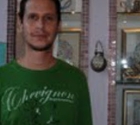 AMIT DRESSLER - HELPING THE LESS FORTUNATE
AMIT DRESSLER - HELPING THE LESS FORTUNATE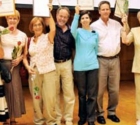 ESRA VOLUNTEER AWARD WINNERS 2010
ESRA VOLUNTEER AWARD WINNERS 2010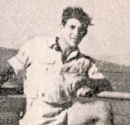 FACT OVERWHELMS FICTION
FACT OVERWHELMS FICTION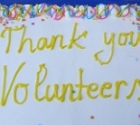 A new website in English - on Volunteering - Launched in Israel
A new website in English - on Volunteering - Launched in Israel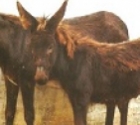 Help Needed for Abused Horses and Donkeys
Help Needed for Abused Horses and Donkeys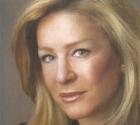 Heather's Heseg
Heather's Heseg Lydia Aisenberg
Lydia Aisenberg